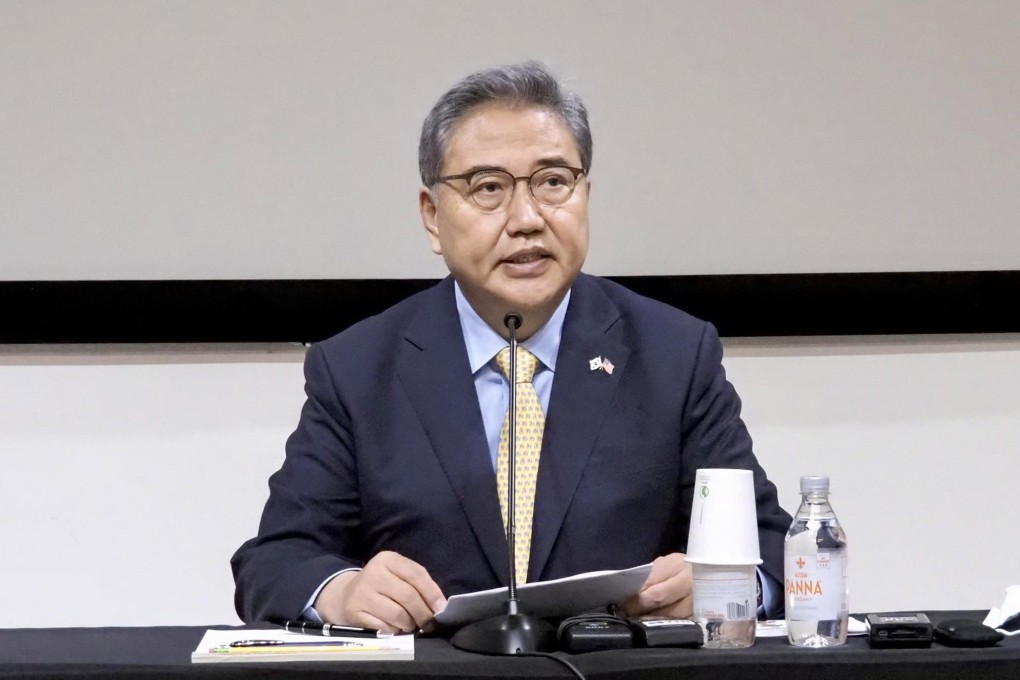Advertisement
South Korea and Japan look to move forward and ‘normalise’ information-sharing by keeping their tense history in the past
- South Korea’s Foreign Minister Park Jin wants to settle old disputes and revive GSOMIA pact thought to have lost steam under previous government
- To ‘deal with the threat from North Korea, we need to have policy coordination and a sharing of information between Korea, Japan … and the United States’ Jin said
Reading Time:3 minutes
Why you can trust SCMP
1

South Korea’s new conservative government is seeking to mend fences with Japan and “normalise” their intelligence sharing pact, but it remains to be seen whether they can successfully settle long-simmering disputes and move forward, analysts said.
After meeting US Secretary of State Antony Blinken in Washington DC on Monday, Foreign Minister Park Jin made the announcement about the General Security of Military Information Agreement (GSOMIA), thought to have lost steam under Moon Jae-in’s previous government amid smouldering disputes about historical issues.
“To deal with the threat from North Korea, we need to have policy coordination and a sharing of information between Korea and Japan and with the United States,” Jin said, according to Yonhap news agency.
Advertisement
However, Seoul and Tokyo’s military intelligence-sharing has been somewhat limited amid tense ties, analysts said, in part referring to the North’s launch of ballistic missiles on June 5 when Seoul said it had launched eight, while Japan initially said it had fired “at least six” though it later revised the number to eight.
“If the two countries and the United States cooperate closely, reduce divergences in their intelligence analyses and issue missile alerts jointly, it would help bolster deterrence against the North,” Political Science Professor Park Won-gon at the Ewha Womans University told This Week in Asia.
Advertisement
Advertisement
Select Voice
Select Speed
1.00x